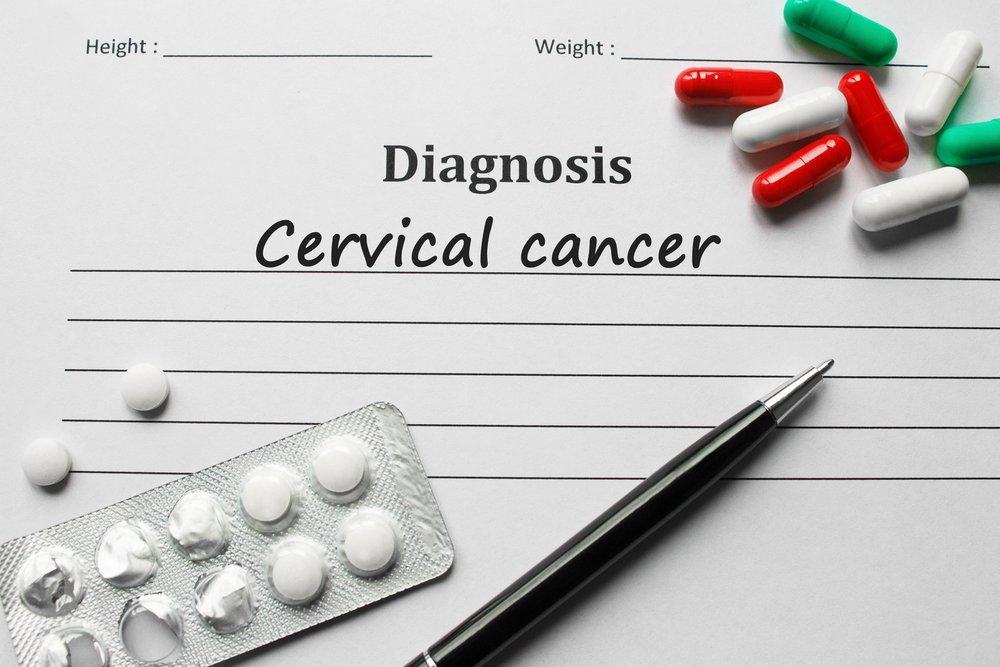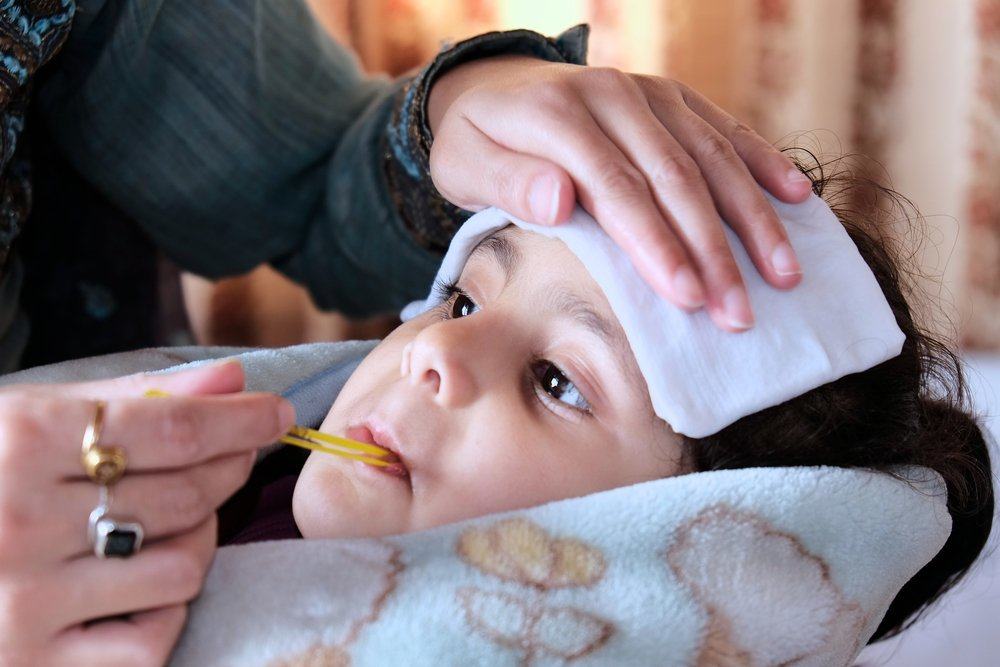Contents:
- Medical Video: Pediatric Fundoplication for Gastroesophageal Reflux Disease (GERD)
- What is GERD and stomach acid reflux in children?
- What causes GERD and gastric acid reflux in children?
- What are the symptoms of GERD and gastric acid reflux in children?
- Who is at risk for GERD and acid reflux in children?
- How to diagnose GERD and stomach acid in children?
- What is the treatment for GERD and gastric acid reflux in children?
- Treat GERD and stomach acid in children
- Surgery
Medical Video: Pediatric Fundoplication for Gastroesophageal Reflux Disease (GERD)
Vomiting the food your baby experiences several times a day is common. But when your child often vomits, inj can cause other problems or symptoms. Continuous vomiting in children is often caused by acid reflux, also called gastroesophageal reflux disease (GERD) or also often called gastric acid reflux. This can occur in infants and children who are more mature.
What is GERD and stomach acid reflux in children?
The esophagus is the part that connects the mouth, throat and stomach to humans. At the end of the esophagus, there are muscles that contract to prevent acid reflux which can cause food content in the stomach to return to the esophagus.
If your baby usually vomits after eating, acid reflux may be the main reason that causes food to rise again from the stomach. However, you do not need to worry about this, because this condition will not become severe as the baby grows older. Acid reflux sometimes causes the baby to vomit throughout the day. Although these symptoms may not be of concern to you if your baby is healthy and well developed, you should not underestimate it, because this condition can be a medical problem such as breathing problems, difficulty gaining weight, and esophageal inflammation (esophagitis).
What causes GERD and gastric acid reflux in children?
In children, the muscles at the end of the esophagus are often not strong enough, so acid reflux occurs more commonly in children than in adults. GERD is the most popular condition of acid reflux in children, but there are also other disorders such as food intolerance, eosinophilic esophagitis, and pyloric stenosis. In older children, this condition can result from pressure under the esophagus or from a weakened esophageal muscle.
What are the symptoms of GERD and gastric acid reflux in children?
GERD is not a serious problem unless it is not treated. To find out what treatment your child needs, you should know the general symptoms. The most common symptoms of GERD in children are:
- Refusing food and not gaining weight
- Vomiting, causing stomach contents to come out of their mouth (projectile vomiting)
- Vomit green or yellow liquid, or blood or ingredients that look like coffee powder
- Have blood in his fist
- Having trouble breathing
- Start vomiting at the age of 6 months or more
GERD can occur in older children and adolescents if they:
- Have pain or heartburn
- Have pain or discomfort when swallowing
- Frequent coughing or wheezing or hoarseness
- Belching excessively
- Nausea
- Gastric acid is felt in the throat
- Feel like food stuck in the throat
- Have worse pain when lying down
While acid reflux and GERD can disappear when your child grows older, this condition can still be dangerous. You should take your child to a doctor if your child has:
- Poor growth, it is difficult to gain weight
- Respiratory problems
- Consistently vomiting by force
- Spew green or yellow liquid
- Vomit blood or ingredients that look like coffee powder
- Have blood in his fist
- Irritation after eating
Who is at risk for GERD and acid reflux in children?
Sometimes, the factors that contribute to acid reflux in infants are unavoidable. Common risk factors include:
- Babies lie too long
- Food that is almost completely liquid
- Birth of a premature baby
How to diagnose GERD and stomach acid in children?
A physical examination and medical history are needed to diagnose symptoms in your baby. Your doctor can diagnose GERD by listing the symptoms you make, whether your baby is healthy and not having serious health problems. If there are health problems, your pediatrician will take several tests as below:
- Ultrasound to detect pyloric stenosis.
- Inserting barium in the upper gastrointestine can identify barriers or narrowing in the esophagus, stomach, and upper part of the small intestine.
- Laboratory tests, such as blood and urine tests, can identify the causes of vomiting and poor weight growth.
- Monitor esophageal pH by inserting a thin tube through the baby's nose or mouth and into the esophagus to monitor acidity
- Upper body endoscopy is usually performed under general anesthesia.
What is the treatment for GERD and gastric acid reflux in children?
You can reduce the risk of GERD and acid reflux in your child with only a few lifestyle changes and dietary patterns. If this change does not work, the doctor may recommend medication or surgery to treat GERD.
For babies:
- Elevate the head of the bed or baby basket
- Hold the baby in an upright position for 30 minutes after breastfeeding
- Thicken milk with cereal (don't do this without your doctor's approval)
- Feed your baby in smaller amounts and give food more often
- Try solid food (with your doctor's approval)
For children:
- Elevate the head of the child's bed.
- Position the child in an upright position for at least two hours after eating.
- Serve a few small meals throughout the day, not three big meals.
- Make sure your child does not overeat.
- Limit foods and drinks that seem to worsen your child's acid reflux, such as high fat foods, fried foods or spicy foods, carbonated drinks, and caffeine.
- Invite your child to exercise regularly.
Treat GERD and stomach acid in children
The drug used to treat GERD aims to reduce gas in the stomach or neutralize stomach acid. Although there is no clear evidence that decreased stomach acid can help GERD in children. These drugs are considered safe enough for children, but antacids can cause diarrhea.
- Drugs to reduce gas include Simetikon like Mylicon®, Gaviscon®.
- Medications to neutralize or reduce stomach acid include antacids such as Mylanta® and Maalox®, H2 antihistamines such as Axid®, Pepcid®, Tagamet®, or Zantac®, proton-pump inhibitors such as Nexium®, Prilosec®, Prevacid®, Aciphex® , and Protonix®.
Surgery
Only in cases of severe reflux, surgery to tighten the lower esophageal sphincter to prevent acid from flowing back into the esophagus. This procedure is usually effective, but also has risks. Discuss the potential risks and benefits of this operation with your pediatrician.
Although acid reflux is less common in children with GERD compared to their more mature counterparts, long-term acid reflux can cause Barrett's esophagus, serious precancerous conditions and even esophageal cancer if the disease is not effectively controlled. You should have your child checked by a doctor if the symptoms are severe.
Hello Health Group does not provide medical advice, diagnosis or treatment.












